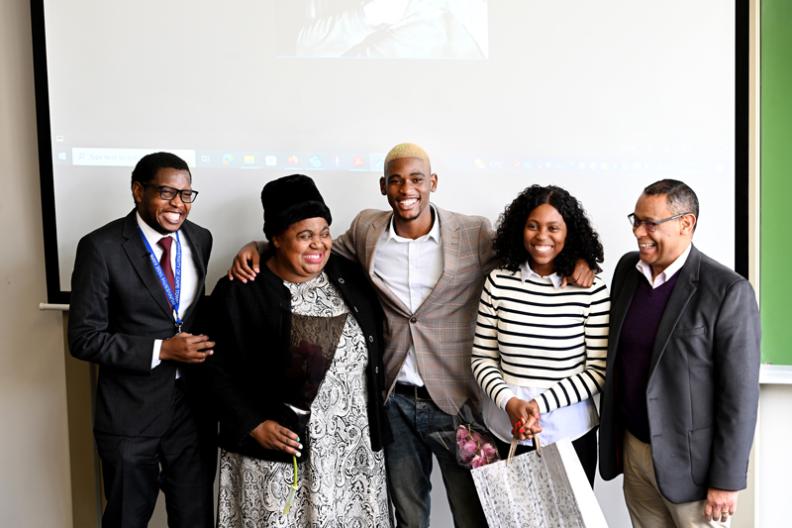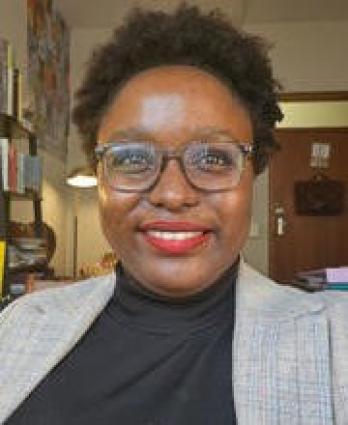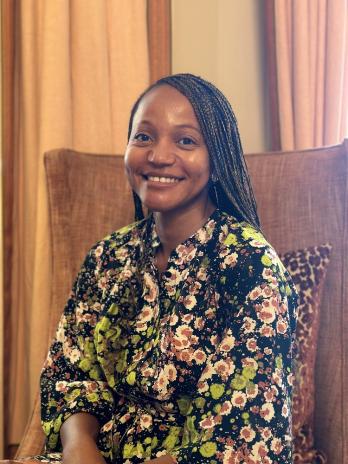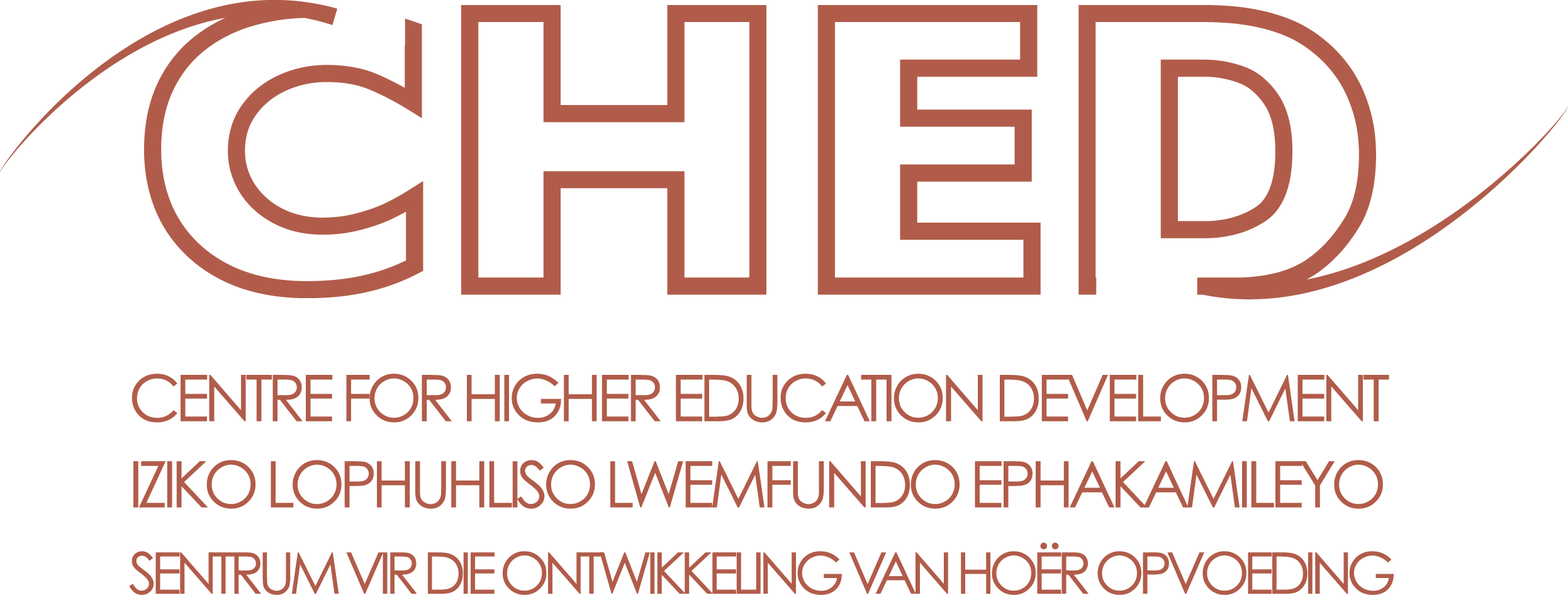Our Approach
Transformation
The Centre for Higher Education Development (CHED) at the University of Cape Town (UCT) adopts a multi-dimensional approach to transformation, deeply informed by UCT’s Vision 2030 and its commitment to inclusivity, diversity, and equity. CHED’s strategy aligns with the broader institutional imperative to disrupt entrenched patterns of privilege, foster social justice, and advance meaningful change.
Through these efforts, CHED seeks to cultivate an environment that not only prepares students and staff for a diverse and interconnected world but also contributes to broader societal transformation in South Africa.
Key Elements of CHED's Transformation Approach:
-
Alignment with Vision 2030 and Strategic Frameworks:
CHED’s mission is closely tied to UCT’s Vision 2030, which emphasizes inclusivity, diversity, and the intersection of transformation across all facets of university life—leadership, teaching, research, and social responsibility. This vision acknowledges South Africa’s apartheid legacy and seeks to address systemic exclusion and inequality.
-
Decolonial and Capacity-Building Outlook:
CHED places a strong emphasis on decolonization, advocating for critical citizenship and pedagogies of care and discomfort. This involves creating equitable access to higher education and dismantling barriers that perpetuate social and academic inequalities.
-
Promoting Equity and Inclusion:
CHED focuses on improving student success by promoting equity of access and effectiveness in teaching and learning. This includes enhancing curricula and adapting the university environment to reflect South Africa’s diverse population while rejecting deficit models of blackness.
-
Community-Building and Cultural Transformation:
CHED recognizes the importance of fostering a transformative ethos grounded in vulnerability, reflection, and a commitment to building a cohesive and inclusive university community. This requires engaging with both the hearts and minds of individuals to ensure lasting transformation.
-
Support for Underrepresented Groups:
The institution provides targeted support for historically disadvantaged and underrepresented groups, striving to create an environment that is socially just and inclusive for students and staff alike.
-
Critical Advocacy for Social Justice:
CHED’s work is guided by the need for thought leadership on social justice, embedding practices that promote equity and cultural transformation across the institution.
Social responsiveness
CHED's approach to social responsiveness is deeply rooted in the understanding that the "social" begins on campus and extends into broader society. By embedding principles of equity, inclusion, and transformation into its teaching, research, and development work, CHED ensures that its activities address complex societal challenges and reflect a commitment to accessibility and justice. This ethos is evident in the faculty's initiatives aimed at widening access to university resources, promoting indigenous knowledge systems, fostering multilingualism, and engaging in partnerships that link academic efforts with societal needs. Through these endeavours, CHED seeks to transform knowledge and practices, ensuring relevance and impact in both local and global contexts.
Central to CHED’s approach is the emphasis on collaboration and partnerships, which facilitate mutual learning, enhance community engagement, and inform the development of contextually relevant programs. By integrating insights from external stakeholders and local communities, CHED ensures that its work remains responsive and impactful. Additionally, the faculty actively promotes transdisciplinary and innovative problem-solving methods, such as design thinking, to tackle real-world challenges. This comprehensive strategy aligns CHED’s mission with UCT’s broader goals, fostering a culture of care, equity, and societal leadership.
Our Initiatives
Stella Clark Teachers Award (SCTA)
As a vital transformation imperative and in keeping with the mission and vision of UCT and CHED in terms of increasing access and improving success amongst previously disadvantaged groups, the Stella Clark Teacher’s Award acknowledges the work of exceptionally talented teachers—the unsung heroes who go beyond the call of duty to provide outstanding education in often difficult circumstances. These teachers stand out as symbols of hope and inspiration for their learners to pursue academic excellence and further their post-matric studies and development.

UCT Mandela Harvard Fellowship
UCT Mandela Harvard fellowship acts as a lever to contribute to the ongoing development of teaching and learning in South African higher education.
The Harvard - UCT Mandela Fellowships are intended to strengthen connections between the W.E.B. Du Bois Institute at the Hutchins Center for African and African American Research and UCT; to provide opportunities for UCT staff to gain international experience, and to support the professional advancement of academics working particularly, but not only, in the humanities and social sciences.
Past fellowship recipients

2024 - Dr Vuyiswa Lupuwana
Vuyiswa Lupuwana is Lecturer in the Department of Archaeology at the University of Cape Town and is affiliated with the Historical Archaeology Research Group.
Her research interests broadly span the period of the last-500 years of interaction, colonialism and resistance in southern Africa. Her most recent work has focused on the interactions between indigenous communities and colonial communities in the 18th and 19th century northern Cape frontier. With respect to this, her research questions are focused on the processes of change and continuity, identity formation and the processes of disavowal and resistance.
Dr Lupuwana is interested in the use of film as a research tool within archaeology. This combination of perspectives has spurred her interest in public and community archaeology and resulted in the production of the documentary Prestwich: a film for the forgotten and the Remembrance Project in the Cederberg.
Her approach to research engages with the complexity of the archaeological record and its intersection with contemporary issues. Dr. Lupuwana also engages with Black feminism as a lens through which the archaeological record can be critically examined. Furthermore, community-based participatory research methods are important to her work for they incorporate social justice in the field of archaeology.
Fellowship Project
Archaeology Goes to the Cinema: Perceptions of Africa and Civilization through the Filmic Lens examines the development of anthropology and the archaeological juxtaposed with the developments of film and television on the African content. This perspective is critical to thinking about how perceptions of identity are formed, and will guide the discourse around decolonial thinking in archaeology. Examining the development of Blackness as a perceived primitive identity is critically linked to the visual world and projections of Blackness in photographs, film and other forms of visual media; interrogating these visual objects in juxtaposition with the development of the archaeological discipline will be the critical addition to the body of scholarship.

2023 - Dr Gavaza Maluleke
Gavaza Maluleke is a lecturer in the Department of Political Studies at the University of Cape Town. Her research interests are in digital activism, transnational feminisms, decolonial theory, migration, gendered violence, masculinities and media studies in Africa. Her current work focuses on digital activism and gendered violence in Post-Apartheid South Africa.
Fellowship Project
As a fellow Dr. Maluleke’s book-length project seeks to analyze women’s digital activism against gendered violence with a focus on hashtag feminisms in post-apartheid South Africa. Employing a digital ethnographic approach, which relies on analyzing textual and multimedia online communications, this project follows the online articulations of womxn speaking out against gendered violence in the hashtags that have gone viral on South African Twitter from 2015-2022.
